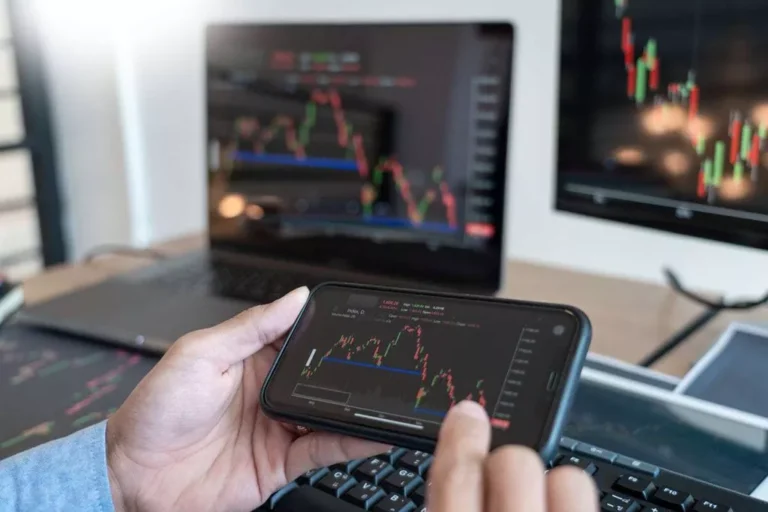
Decentralized Exchange Vs Centralized Exchange: A Comparison
The government licenses and regulates the majority of the centralized exchanges. Crypto exchanges may be prohibited in certain countries – for instance, China, South Korea, India, and Russia – thus it is in CEX’s best interests to abide by the regulations. As such, if a person loses their Coinbase account, they cannot access the cryptocurrency. One particular aspect of crypto coins that differentiates them from crypto tokens is how coins are created (proof of work vs proof of stake).

Numerous crypto exchanges introduce assets that may reduce trading costs. Suggest you open a crypto broker account, and we deposit 1,000 USD so we can sell Bitcoin. In case the price of BTC drops, we are benefiting from the difference at which we pull out of the trade. So, once the price drops from 1,000 USD to, let’s say, 600 USD, we take the 400 USD profit thanks to that difference. You’ll first select the crypto asset you want to trade, open your trade and then place your desired trade size and price. You can still set automatic buy and sell orders to ensure you don’t have to watch your exchange platform like a hawk.
When using only crypto deposits and withdrawals, the fees might be much lower, especially the deposit fees, where most exchanges don’t charge those so you pay only a withdrawal fee. Verify the database of assets to see if cryptocurrencies and other digital assets you want to trade are included. Remember that the top brokers may provide copy trading services, which can help novices or those with little to no time trading on financial markets. First, you should decide what you want to invest in or trade with and whether you wish to trade with as many cryptocurrencies as possible.
Decentralised exchanges do, however, have far more limitations that a centralised exchange. There is a general lack of functionality, with only basic market features and functions being made available. Decentralised exchanges also can’t support fiat conversions so users are left with a lot less choice and flexibility when it comes to cryptocurrency trading. Cryptocurrency trading is becoming more popular and there are multiple ways to complete transactions. But there are many issues in the industry surrounding security and trust.
Centralized cryptocurrency exchanges, as the name implies, function as a middleman between buyers and sellers. Almost all crypto transactions are conducted through centralized exchanges, which provide more trustworthiness. Traders’ necessity for crypto exchanges to carry out trading has increased as the number of cryptocurrencies has exponentially increased in the last couple of years. These cryptocurrency exchanges allow investors to instantaneously exchange, buy, and sell cryptocurrencies. Withdrawing funds from exchanges in fiat currencies is again a piece of hassle. Of course, you can use e-wallets and online exchanges, but this again involves commissions.
And since it’s the market defining the price on exchanges, traders can better capitalize on opportunities compared to when using brokers. When choosing a crypto exchange, know that there are only cryptocurrencies or other digital assets you can trade. Clients who prefer to invest directly in cryptocurrencies, have their own assets or hold long positions usually consider using exchange services. Numerous crypto exchanges provide a variety of fee reduction strategies as well as investment options for extra income. The most advanced exchanges offer staking, which often brings new customers.
- The most popular and straightforward way of buying, selling, and staking digital assets is through a digital currency or cryptocurrency exchange.
- When you cooperate with a broker, you deposit funds in an intermediary’s account, and then, he/she decides what to do with your finances to bring you profits.
- Exchanges engage traders with the diversity of digital currency pairs.
- It is common knowledge that professional traders and investors should always put high importance on managing risk.
- However, in order to deposit funds and start trading, verifying your account is mandatory.
In that sense, we can think of brokers like a brick-and-mortar store that stocks and sells cryptocurrencies. Brokers’ services are also suitable for those clients who are engaged in short and medium-term margin trading to benefit from fluctuations in the price of cryptocurrencies. On the other hand, a broker offers lower withdrawal and trading fees, but there are traded significantly higher amounts so the absolute amount of fee could be a similar size.
When dealing with a CFD, the seller does not have to hold a specific asset. That being said, it is difficult for the buyer to demand it from the seller. The seller here gives the buyer the difference if the asset’s price increases between when the position is opened and when it is closed. Marko has been working on the road for https://www.xcritical.in/ over 5 years, and is currently based in Europe. Alongside writing and editing, Marko works on projects related to online technology and digital marketing. The exchange account opening form might ask the user for the basic details such as name, gender, address, email id, date of birth and a copy of photograph, if needed.
Likely, many of you are already aware of the frequent occurrence of cryptocurrency exchange hacks. Even prominent platforms like Binance have fallen victim to hackers and scammers, as evident from the Binance KYC data leak incident in the past year. Others, particularly those using fiat currency, need some verification. There are several things to consider when getting involved with a spot market. In a spot exchange, the actual asset is delivered in person, while in margin trading with a broker, only the underlying asset is traded rather than the physical item. To have a clear understanding of the concept of cryptocurrency broker and exchange you must know what a broker is along with knowing about the exchange.
However, storing your digital currency on an exchange could see you lose all your digital currency if the exchange is hacked or if the owners traded the currency and ran off. Also, storing your digital currency will have you dealing with issues such as backing up, securing and managing your wallet. Before opting for a wallet vs. exchange, always evaluate the risks. Brokers generally charge higher fees than exchanges for buying and selling cryptocurrencies.

Brokers, like cryptocurrency exchanges, offer a similar account opening process; however, they have stricter conditions to follow. Considering the broker has to follow state regulations, you can’t proceed without authentication. To register, an individual must show identification and provide evidence of their address, like a utility bill, bank statement, or rent bill. When you trade through a broker, the broker connects to one or more crypto exchanges.
First, it is necessary to determine a significant difference in the very essence and purposes of both methods. Do your research before you make your choice, and take the time to decide what is best for you. Getting on the right path to financial success can be achieved with appropriate planning and preparation. Remember that you are handling your valued money, so do your homework and do more research before spending it. The most extensive Exchange, Binance, allows trading without a complete KYC and a daily withdrawal limit of 2 BTC. Always remember that you are handling your precious money, so better to think twice about where to put it and try to do some extra research at the time.
They usually charge higher fees for their trades, withdrawals, and sometimes even deposits. But if you’re an experienced trader looking for more advanced cryptocurrency exchange vs broker trading options and lower fees, an exchange might be the better choice. The principles of crypto brokers are different from those of crypto exchanges.
